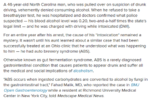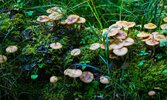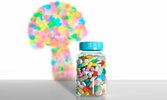- Joined
- 30 June 2008
- Posts
- 15,930
- Reactions
- 7,829
Saw an amazing doco last night which certainly made me sit up and take notice.
Fantastic Fungi highlights how critical fungi are in the earths eco system. They are in fact a completely different species to plants and animals.
The reason I have posted the story in this thread is because the doc raised many new investment opportunities. These ranged from natural insecticides, valuable drugs to cleaning up of toxic wastes.
If you already have a deep knowledge of the fungi world then you won't learn much more. But frankly I would be surprised if most people on ASF wouldn't appreciate this are much more after watching the show.
There is a website called fantastic fungi and there will be a free online forum in October which would be an opportunity to check out some of the investment opportunities as well as the broader issues raised.
 fungiglobalsummit.com
fungiglobalsummit.com

 www.theguardian.com
www.theguardian.com
Fantastic Fungi highlights how critical fungi are in the earths eco system. They are in fact a completely different species to plants and animals.
The reason I have posted the story in this thread is because the doc raised many new investment opportunities. These ranged from natural insecticides, valuable drugs to cleaning up of toxic wastes.
If you already have a deep knowledge of the fungi world then you won't learn much more. But frankly I would be surprised if most people on ASF wouldn't appreciate this are much more after watching the show.
There is a website called fantastic fungi and there will be a free online forum in October which would be an opportunity to check out some of the investment opportunities as well as the broader issues raised.
Fungi Global Summit
 fungiglobalsummit.com
fungiglobalsummit.com

Spore's the pity: how Fantastic Fungi flags up man's abuse of nature
The team behind a new documentary full of incredible footage of the secret life of mushrooms explain how fungi could help us stave off future pandemics








